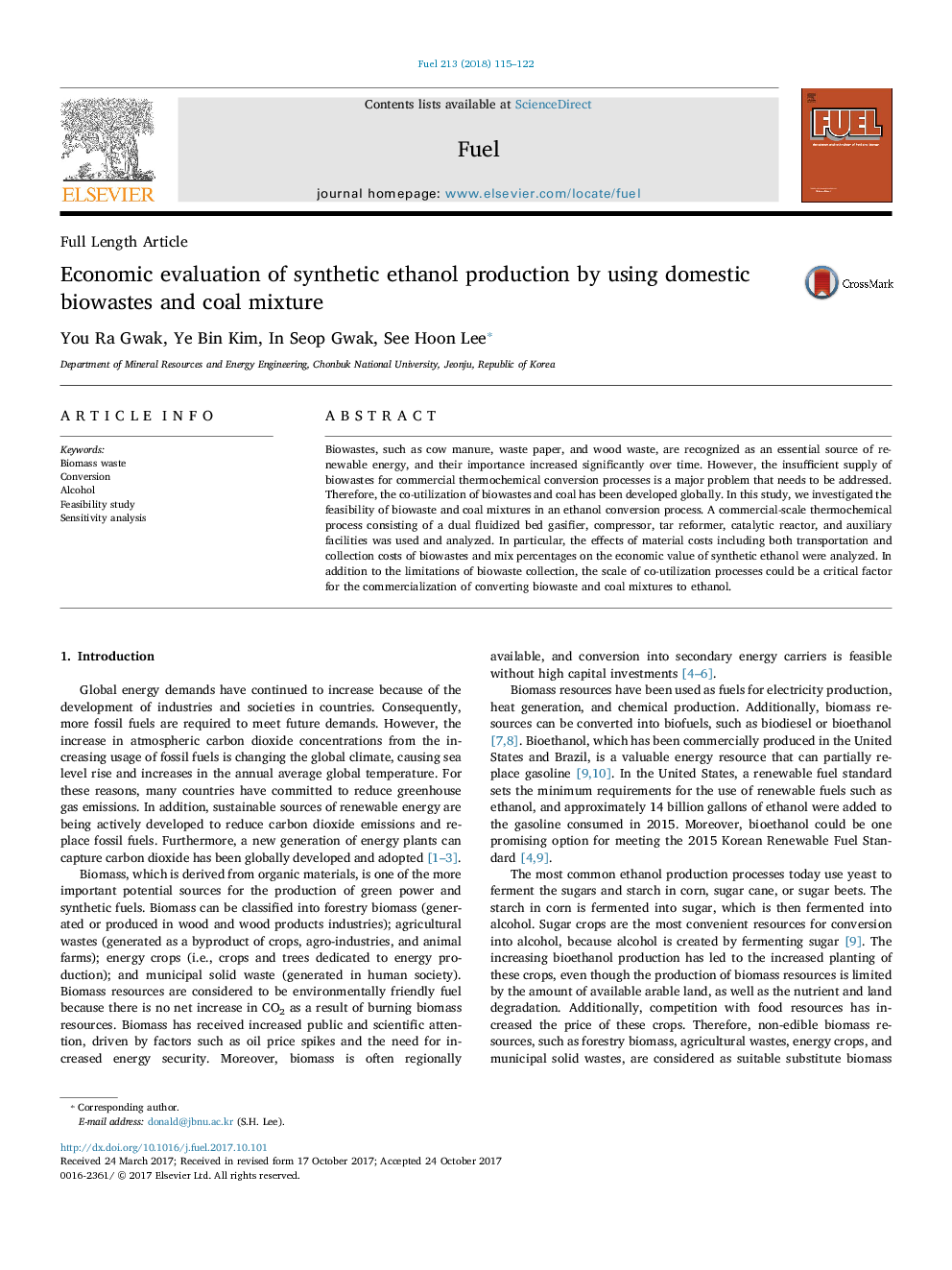ترجمه فارسی عنوان مقاله
ارزیابی اقتصادی تولید اتانول مصنوعی با استفاده از زباله های خانگی و ترکیب زغال سنگ
عنوان انگلیسی
Economic evaluation of synthetic ethanol production by using domestic biowastes and coal mixture
| کد مقاله | سال انتشار | تعداد صفحات مقاله انگلیسی |
|---|---|---|
| 92456 | 2018 | 8 صفحه PDF |
منبع

Publisher : Elsevier - Science Direct (الزویر - ساینس دایرکت)
Journal : Fuel, Volume 213, 1 February 2018, Pages 115-122
ترجمه کلمات کلیدی
زباله زباله، تبدیل، الکل، مطالعه امکان سنجی، تجزیه و تحلیل میزان حساسیت،
کلمات کلیدی انگلیسی
Biomass waste; Conversion; Alcohol; Feasibility study; Sensitivity analysis;
ترجمه چکیده
زیستی های زیستی، مانند کود گاو، کاغذ زباله و زباله های چوب، به عنوان منبع ضروری انرژی تجدید پذیر شناخته شده اند و اهمیت آنها در طول زمان به طور قابل توجهی افزایش یافته است. با این حال، عرضه کافی از زباله ها برای فرآیند تبدیل تجاری ترمو شیمیایی، یک مشکل عمده است که باید مورد توجه قرار گیرد. بنابراین استفاده مشترک زباله ها و زغال سنگ در سراسر جهان توسعه یافته است. در این مطالعه، امکان سنجی زباله ها و مخلوط های زغال سنگ در فرایند تبدیل اتانول مورد بررسی قرار گرفت. فرایند ترمو-شیمیایی تجاری شامل متشکل از گازگرای سوپاپ، کمپرسور، اصلاح کننده تار، رآکتور کاتالیزوری و امکانات کمکی، مورد استفاده قرار گرفت و مورد تجزیه و تحلیل قرار گرفت. به طور خاص، اثرات هزینه های مواد از جمله هزینه های حمل و نقل و جمع آوری زباله ها و درصد مخلوط بر ارزش اقتصادی اتانول مصنوعی، مورد تجزیه و تحلیل قرار گرفت. علاوه بر محدودیت های جمع آوری زباله، مقیاس فرایندهای همکاری، می تواند عامل مهمی برای تجاری سازی تبدیل زباله ها و مخلوط های زغال سنگ به اتانول باشد.

